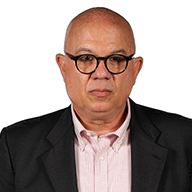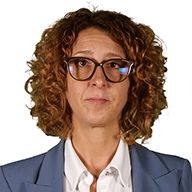Log in and enrol
Sustainability and Sustainable Development: an introduction, from roots to future challenges
Sustainability and Sustainable Development: an introduction, from roots to future challenges
This course is part of
Course description
The MOOC offers a comprehensive and up-to-date introduction to sustainability and sustainable development, covering key milestones, the SDGs, the ESG framework, and the main drivers of the sustainable transition. Designed for students, professionals, and informed citizens, the course fits within the context of education for sustainable development and global citizenship, supporting the integration of sustainability into economic and social systems.
Total workload of the course: 5 h
This MOOC is provided by Politecnico di Milano.
For a wider diffusion of the course, learning materials including texts, infographics, diagrams and videos were translated from Italian to English through Artificial Intelligence software. Therefore they may contain inaccuracies.
Intended Learning Outcomes
By actively participating in this MOOC, you will achieve different intended learning outcomes (ILOs):
- understand the foundations of the concept of sustainability and its evolution over the past decades
ESCO: processing information, ideas and concepts ESCO: consult information sources ESCO: monitor developments in field of expertise - understand the structure and content of the Sustainable Development Goals, analyzing the main challenges in implementation
ESCO: sustainable development goals ESCO: environmental policy - recognize the different dimensions of sustainability, their integration (EES) and measurement also in the business context (ESG)
ESCO: systems thinking ESCO: corporate sustainability - analyze the central role of sustainability in responding to the interconnections between environmental, economic and social challenges
ESCO: promote environmental awareness ESCO: assess environmental impact - reflect on the different risk factors and current challenges towards a shared and integrated sustainability
ESCO: address problems critically ESCO: assess risk factors ESCO: advise on sustainable management policies
Prerequisites
No formal knowledge is required.
Activities
The forum of this MOOC is freely accessible and participation is not guided; you can use it to compare yourself with other participants, or to discuss course contents with them.
Section outline
-
-
In light of the environmental, social, and economic crises we are facing, what visions and tools are needed to understand the current challenges and design a more livable future? This MOOC offers an introductory overview of sustainability and sustainable development. After identifying the roots of the sustainability concept, video 1 retraces the main historical milestones of sustainable development. Video 2 presents a concise review of the Sustainable Development Goals (SDGs) of the 2030 Agenda, along with tools to monitor progress toward the targets using the most up-to-date data. Video 3 identifies the factors that make a transformative approach to sustainability urgent—one that not only mitigates risks but also generates shared value. Video 4 introduces the main sustainability frameworks, highlighting the role of impact measurement and the need to progress toward integrated systems. Finally, video 5 addresses some of the most pressing constraints to development and the most urgent challenges for a transition that is respectful of planetary boundaries, just, and inclusive—toward more livable and healthier futures for all.
-
-
Video transcripts Folder
-
Assessment
Your final grade for the course will be based on the results of your answers to the assessed quizzes. You have an unlimited number of attempts at each quiz, but you must wait 15 minutes before you can try again. You will have successfully completed the course if you score 60% (or higher) in each one of the assessed quizzes. The maximum score possible for each quiz is given at the beginning of the quiz. You can view your score in the quiz on your last attempt or on the 'Grades' page.
Certificate
You can achieve a certificate in the form of an Open Badge for this course, if you reach at least 60% of the total score in each one of the assessed quizzes and fill in the final survey.
Once you have completed the required tasks, you will be able to access ‘Get the Open Badge’ and start issuing the badge. Instructions on how to access the badge will be sent to your e-mail address.
The Badge does not confer any academic credit, grade or degree.
Information about fees and access to materials
You can access the course completely online and absolutely free of charge.
Course faculty

Renato Casagrandi
Teacher
Renato Casagrandi is Professor of Ecology and Deputy Director for Sustainability at DEIB (PoliMI). He has chaired Environmental Engineering programs and is a Board member of the Italian Society of Ecology. Holding an Engineering background with a PhD in Ecology (Parma), he also held a postdoc position with Simon A. Levin at Princeton. He's been a visiting scholar at international centers like IIASA, the Institute of Advanced Studies at HUJI, and MIT. Having participated in numerous international and national research projects as principal investigator, group leader, or team member, his research primarily covers ecological modeling, biodiversity, and spatiotemporal dynamics in ecology and epidemiology. He has over 150 publications, one hundred of which are in peer-reviewed journals.

Irene Bengo
Teacher
Graduated in Environmental and Land Engineering from the Politecnico di Milano, PhD in Management Engineering. Associate Professor at the School of Management of Sustainability and Social Innovation and Impact Management and Measurement. Scientific coordinator of the TIRESIA research group, Director of the Bocconi-Politecnico di Milano Joint Degree in Transformative Sustainability. Her publications, research, and national and international projects focus on impact and sustainability measurement and management. She is CEO of Triadi srl Società Benefit, a spin-off of the Politecnico di Milano, member of the board of directors of Assobenefit, and member of the scientific committee of Social Value Italia.
Contact details
If you have any enquiries about the course or if you need technical assistance please contact pok@polimi.it. For further information, see FAQ page.
